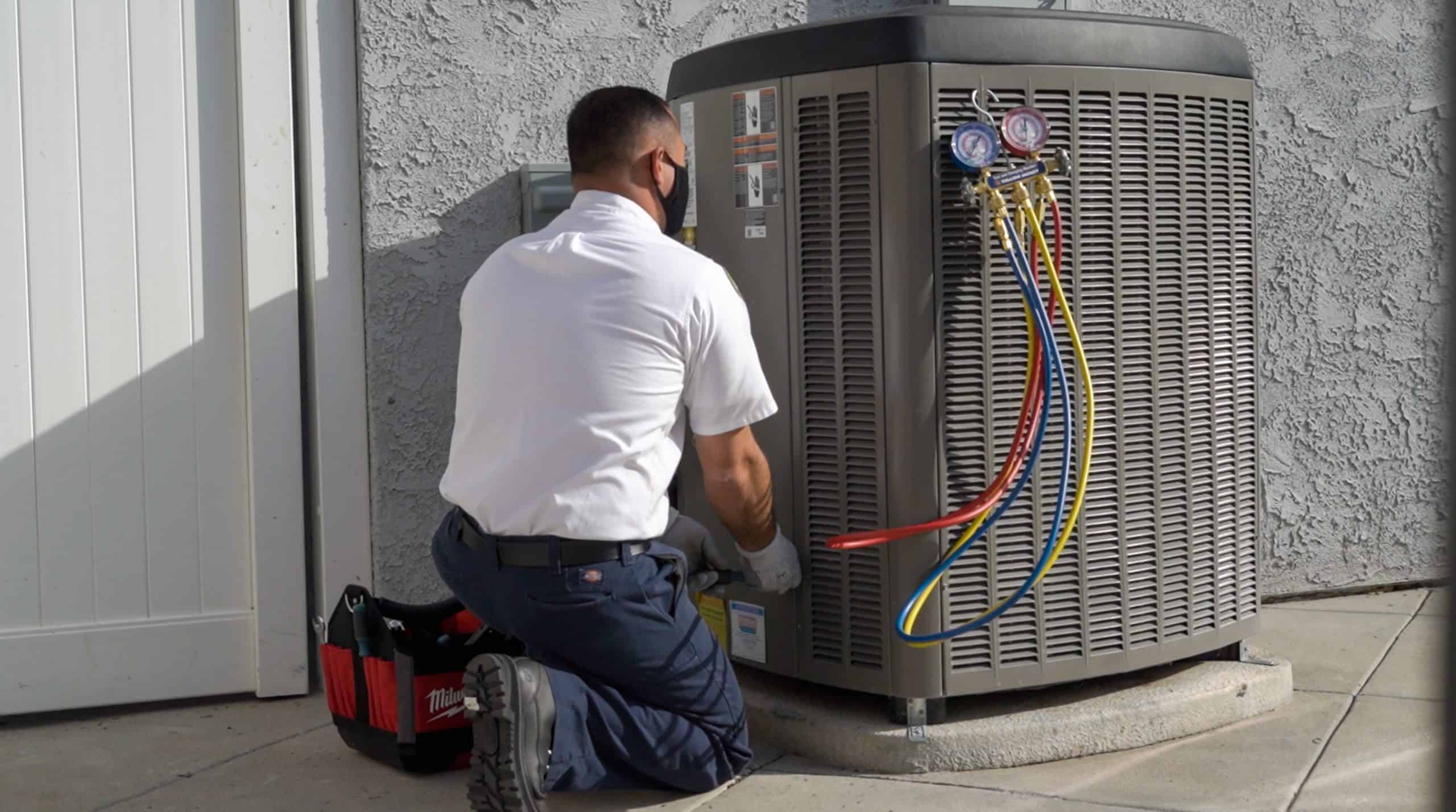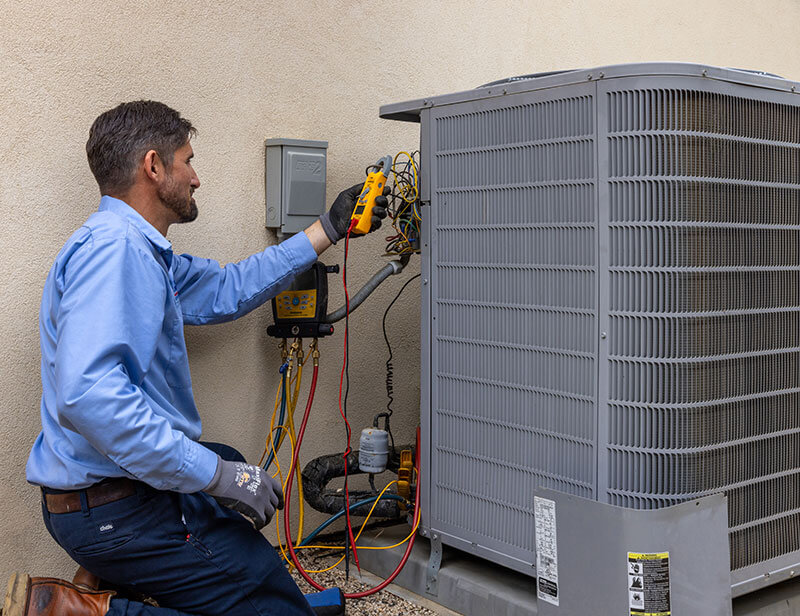Upgrade Your System Today with DMAKS HVAC Professional Help.
Upgrade Your System Today with DMAKS HVAC Professional Help.
Blog Article
Energy-Efficient Cooling And Heating Solutions to Reduce Utility Bills
As power costs proceed to increase, the relevance of energy-efficient Cooling and heating systems comes to be significantly obvious. These systems not just promise substantial cost savings on utility expenses however additionally contribute to a much more sustainable future by reducing power consumption.
Advantages of Energy-Efficient HVAC Systems
Energy-efficient heating and cooling systems supply various advantages that extend beyond simple cost savings. One substantial benefit is the lowered environmental influence. By eating much less energy, these systems contribute to reduce greenhouse gas emissions, assisting to fight environment change and promote sustainability. This straightens with raising social demands for green practices in property and commercial setups.
Additionally, energy-efficient cooling and heating systems often supply boosted comfort degrees. A number of these systems feature sophisticated innovation that enables better temperature control and boosted air top quality (DMAKS HVAC). This leads to a healthier interior environment, which is especially vital for people with allergic reactions or respiratory system problems
Furthermore, purchasing energy-efficient heating and cooling systems can improve residential or commercial property worth. As even more consumers focus on power performance, homes and buildings outfitted with these systems may draw in greater quotes in the realty market.
Kinds of Energy-Efficient Cooling And Heating Options
Exactly how can home owners and businesses pick the most appropriate energy-efficient cooling and heating choices for their demands? The market uses a range of energy-efficient heating and cooling systems, each made to enhance convenience while minimizing energy usage.
One option is the variable refrigerant circulation (VRF) system, which successfully controls the temperature level in multiple zones within a building. This system adjusts its refrigerant flow to match the wanted temperature level, causing significant power savings.
One more preferred option is geothermal heatpump, which use the planet's stable temperature level to warm and trendy areas. By transferring heat to and from the ground, these systems demonstrate outstanding performance, particularly in modest environments.
Furthermore, ductless mini-split systems offer an energy-efficient alternative for homes doing not have ductwork. These systems enable zone-specific home heating and cooling, lowering power waste in vacant areas.
Last but not least, high-efficiency heating systems and ac unit, with sophisticated SEER and AFUE rankings, use reliable climate control while taking in less energy than typical models. By reviewing these choices, homeowners and businesses can pick a cooling and heating system tailored to their specific requirements and power performance goals.
Key Functions to Think About

Next, check out the type of compressor made use of in the system. DMAKS HVAC. Variable-speed compressors can adjust their result to match the heating or cooling down demand, causing enhanced convenience and power financial savings contrasted to single-speed designs. In addition, try to find systems geared up with wise thermostats that offer programmable settings and remote gain access to, allowing for much better control over energy intake
One more vital feature is the system's air purification capability. High-efficiency filters can enhance indoor air quality and minimize power usage by guaranteeing the system operates efficiently. In addition, take into consideration the kind of refrigerant used; modern systems often utilize eco-friendly cooling agents that have a reduced ecological impact.
Last but not least, ensure that the system is compatible with zoning technology, which permits tailored temperature level control in various areas of your home, boosting comfort while decreasing power usage.
Tips for Picking the Right System

Following, take into consideration power performance rankings, specifically the Seasonal Energy Effectiveness Ratio (SEER) for cooling down systems and the Annual Gas Utilization Efficiency (AFUE) for furnace. Higher rankings show higher useful link effectiveness, which can lead to substantial cost savings on utility expenses over time.
In addition, evaluate the sort of cooling and heating system that finest matches your way of living and budget. Options include central air conditioning, ductless mini-splits, and heat pumps, each with its very own collection of advantages and disadvantages.
Don't overlook the importance of correct installment and sizing; an incorrectly sized system can result in ineffectiveness and raised wear. Seek advice from with an expert Heating and cooling professional to get professional recommendations customized to your home's one-of-a-kind requirements. This comprehensive approach will certainly make certain that you select an energy-efficient cooling and heating system that meets your requirements and budget properly.
Upkeep for Optimal Efficiency
Once the ideal heating and cooling system is in place, recurring maintenance comes to be essential to guaranteeing optimal efficiency and longevity. A well-kept system runs more successfully, resulting in lower energy usage and minimized energy bills. Routine inspections and tune-ups need to be set up at the very least two times a year-- once before the air conditioning season and once before the home heating period.

House owners must also be attentive concerning checking their cooling and heating system's efficiency. Uncommon sounds, rising and fall temperatures, or raised power costs can suggest underlying problems that require prompt interest. By resolving these concerns without delay, home owners can protect against costly repairs and prolong the lifespan of their systems.
Buying a maintenance strategy with a qualified professional not just boosts performance but likewise provides comfort, understanding that the system is running at its finest. DMAKS HVAC. Routine upkeep is therefore vital for sustaining power efficiency and lowering total functional prices
Final Thought
In final thought, energy-efficient a/c systems provide a feasible solution for minimizing energy expenses while enhancing convenience and air high quality. By incorporating advanced innovations and options such as geothermal warmth pumps anonymous and ductless mini-splits, homeowner can achieve significant energy financial savings and add to environmental sustainability. click here for info Mindful consideration of system functions and continuous upkeep additionally makes certain optimal efficiency, making energy-efficient systems a sensible investment for both financial and eco-friendly advantages.
Report this page